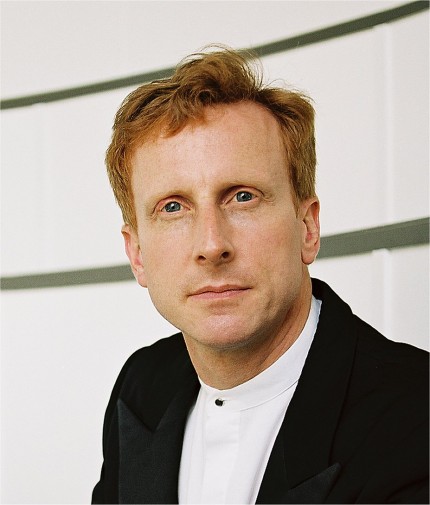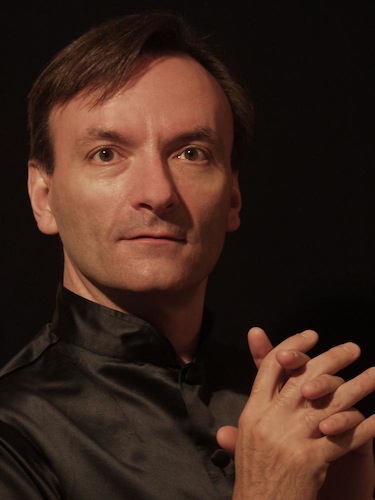Hugh Wolff returns to Grant Park for Dvořák, Beethoven

There are conductors in the world who not only pointedly ignore their predecessors but pretend that they never existed and that the world began with their ascension.
So, in a business often characterized by jealousy and back-stabbing, it was an uncommonly gracious act for Carlos Kalmar to mark the Grant Park Music Festival’s 80th anniversary season (and ten years at Millennium Park) by inviting two of his predecessors back to lead concerts at the Pritzker Pavilion this summer. Leonard Slatkin will take the podium next weekend but Friday night it was the turn of Hugh Wolff, who served as Grant Park music director from 1994-1997.
Dvořák wrote one great concerto for cello, one good concerto for violin, and one not-so-good concerto for piano.
Dvořák’s Piano Concerto is the Czech composer’s earliest of his three works in the genre and it remains the least often performed. It’s not too hard to understand why. While there are flashes of his melodic richness–as with the pastoral second theme of the opening movement–the composer had not yet found a way to fuse his distinctive voice with the rigors of concerto form. There are fleeting inspired moments, yet the music tends to meander, the working out of material is awkward, and much of the piano writing feels stiff and clunky.
It takes an artist of Stephen Hough’s caliber to make a case for this rather intractable work, and the gifted English pianist largely succeeded. His blend of intelligence and digital dexterity deftly negotiated the weaknesses and brought bristling virtuosity to the finale. Wolff led the Grant Park Orchestra in a mostly strong and purposeful accompaniment albeit with a couple moments of miscoordination and a rather heavy-footed finale.
In what has been a very wet and unseasonably cool summer, it was good to have the thunderstorm only on paper Friday with Beethoven’s Symphony No. 6.
Beethoven’s paean to his beloved nature is hard to resist when played in al fresco surroundings, not least those as inviting as Chicago’s lakefront. Wolff directed a sturdy enough reading with a vigorous band of country revelers and an imposing storm.
Yet for the most part this was pretty routine Beethoven—acceptable as far as it went but without offering much in the way of individual interpretation or distinction, let alone a sense of the music’s pantheist underpinnings. The piquant woodwind birdcalls at the end of the second movement were rather literal and charmless, and balances seemed off at times along with errant wind tuning and some shaky horn moments.
The concert began with Route 66 by Michael Daugherty. This dynamic curtain-raiser is cast in Daugherty’s engaging brand of dynamic populist Americana with motoric rock rhythms, metal percussion and the shade of Leonard Bernstein fitfully looking in on the proceedings. Wolff led a brassy and exuberant performance, and, at just seven minutes, Route 66 is short enough not to wear out its kicks.
The program will be repeated 7:30 p.m. Saturday. gpmf.org
Posted in Performances






Posted Jul 20, 2014 at 5:08 am by Lawrence Eckerling
Wow….I don’t agree at all about the Beethoven. To me, this performance was anything but routine. Tempi were brisk (in all movements but the storm). Wolff was obviously trying to approach Beethoven’s actual tempo markings. There were times when doing so made it almost unplayable, and so the orchestra made him allow the tempi to relax, momentarily. But what was surprising is that despite the brisk tempi, it never felt “driven”, and had a really smooth sense. And that to me is to Wolff’s credit. I’m still thinking about that performance, which is why I believe it was quite good.
Posted Jul 20, 2014 at 8:16 pm by Jack
I and almost everyone I spoke to thought that the Beethoven was cut short without all of the movements. Is there any basis for this?
Posted Jul 21, 2014 at 12:14 pm by Lawrence A. Johnson
The performance was complete.
Posted Jul 24, 2014 at 12:52 am by Giselle
movements 3,4,and 5 of the symphony transition directly into the next…perhaps an explanation for your confusion